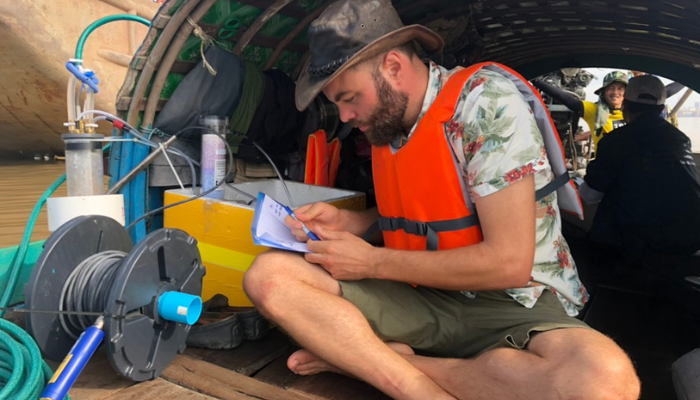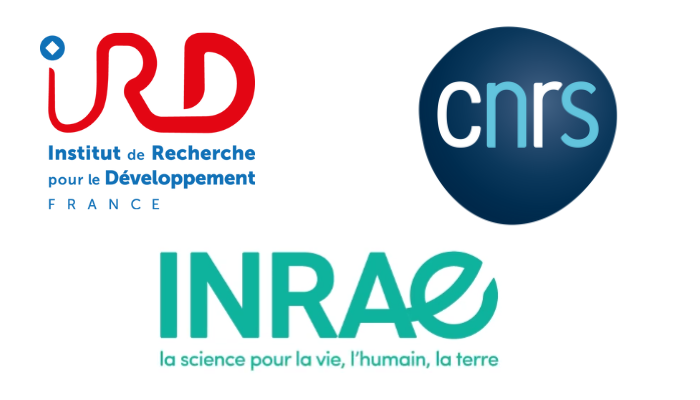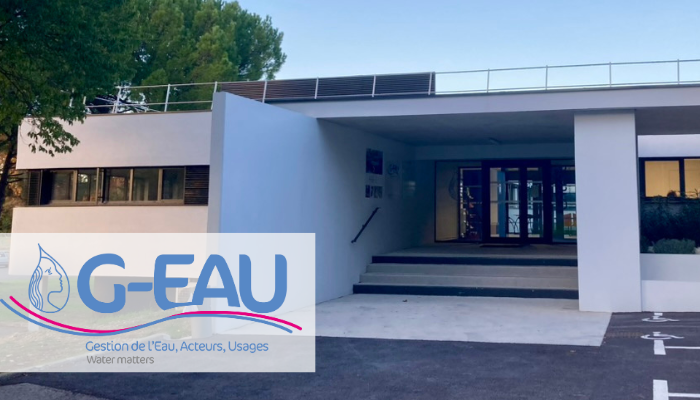
For most early-career hydrologists, securing a permanent position as a researcher or assistant professor is a major aspiration. Yet, with the proliferation of short-term contracts, achieving this goal has become increasingly challenging.
In France, the academic system still offers an annual opportunity for young hydrologists and hydrogeologists to obtain such positions, even though the process is both unique and highly demanding.
In 2021, I was living, teaching, and conducting research in Canada, a role that broadened my expertise and perspective. I was eager, however, to take on new challenges by studying water issues in the Global South within an interdisciplinary academic unit in a long-term position supporting expatriation.
That was when I discovered G-EAU, a research unit in Montpellier, France, which perfectly aligned with my goals. Applying, however, still meant tackling the challenge of the concours.
What is the French Concours for a Permanent Research Position?
In France, access to permanent research positions generally goes through a national competitive recruitment process known as the concours. Most major public research institutions organize their own yearly campaign.
For hydrologists and hydrogeologists, the most relevant organizations are:
- The National Research Institute for Sustainable Development (IRD)
- The National Research Institute for Agriculture, Food and Environment (INRAE)
- The National Center for Scientific Research (CNRS)
The annual concours of IRD, INRAE, and CNRS are open competitions: any candidate – both French and international – can prepare and submit a dossier based on their scientific profile and project, as long as it fits with the activities of a target research unit.

Passing the IRD Concours
The IRD concours opens each year in February, with several positions available in each of its five scientific sections (Commissions Scientifiques Sectorielles, CSS), ranging from more social-science oriented posts to modelling- and data-focused ones.
The particularity of IRD is its mission, which is oriented toward addressing global challenges through research in partnership with the Global South. It benefits from the support of both the Ministry of Research and the Ministry of Europe and Foreign Affairs. This unique status enables long-term research stays abroad, multi-year postings in partner countries, and dedicated support mechanisms to stimulate and structure collaborations.
To succeed in any of the French research concours for a permanent position, early career researchers need to demonstrate dynamism and independence. There are no restrictions regarding the age or nationality of applicants and no formal minimum number of papers you need to have published, or grants you need to have attained.
Your CV should highlight that you’ve worked – and published – independently, that you’ve contributed to the community, and that you take initiative in your field. Speaking French is not a requirement, but it is a significant advantage for rapidly settling in your new research unit.
How to Pass the Concours: Fundamentals, Tips and Tricks
The Global South orientation of IRD strongly shapes the evaluation process. Beyond scientific excellence, candidates are expected to demonstrate:
- the relevance of their research to development issues,
- the ability to collaborate effectively with partners from the South,
- and the capacity to contribute to long-term, interdisciplinary projects.
Importantly, you need to select a target research unit where your project aligns with existing research agendas and collaborations.
My advice: Contact potential host units in advance, discuss your ideas openly, and refine your proposal so that it clearly complements ongoing projects.
From my own experience, I was fortunate to have strong support from my future host team at G-EAU, who reviewed my dossier and helped me strengthen it in line with IRD criteria.
Passing the concours involved two phases: first, the submission of my written dossier in February/April, then an interview via Zoom in June. The results came in July, and I was thrilled to have passed.
Settling in for the Long Term at G-EAU
I officially entered IRD in 2022 within the G-EAU unit. Soon after, I spent two years as an expatriate researcher in Cambodia at the Institute of Technology of Cambodia, within the Coastal and Wetlands Environmental Research Lab. This was a deeply rewarding experience, both scientifically and personally. It allowed me to immerse myself in the realities of the field, to work side by side with local partners, and to better understand the temporalities and challenges of applied research in the South.
In my new permanent position, I could develop interdisciplinary approaches to hydrology and hydrogeology, and combine field observations, hydrochemistry and modelling to address water issues in complex socio-environmental contexts. This work was carried out in close collaboration with colleagues from G-EAU, whose diverse perspectives on water processes and governance enriched the research and helped strengthen long-term partnerships in the region.

Want to Tackle the Concours? Reach Out!
The next concours will open in February. If you’re considering applying for a research position, now is the time to start preparing.
If your research background and project idea align with IRD’s mission and the research activities of the G-EAU Unit, feel free to get in touch (paul.baudron.ird@gmail.com). We’ll be glad to share feedback to help you sharpen your application and maximize your chances of success!


Kodituwakku arachchillage
I am Sri Lankan hydrogeologist and your activities are very useful and interesting to get more information for further communication